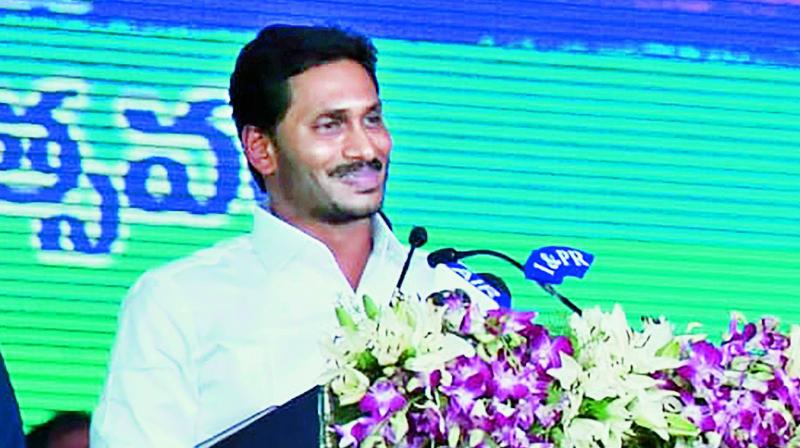Dad’s the way

In a rare yet interesting phenomenon, when Y.S. Jagan Mohan Reddy took oath as the second Chief Minister of Andhra Pradesh on Thursday, he joined an elite club where a Chief Minister’s son has gone on to become a Chief Minister himself (Jagan’s father Y.S. Rajasekhar Reddy was also the Chief Minister of Andhra Pradesh).
Ditto was the case when Akhilesh Yadav became Chief Minister of Uttar Pradesh after his father Mulayam Singh Yadav, and HD Kumaraswamy after his father Deve Gowda served as the Chief Minister of Karnataka.
Admitting that a father-son duo becoming Chief Ministers is indeed a rare and interesting phenomenon, Karthik Reddy, son of former Minister Sabita Indra Reddy, shares that an individual’s drive determines one’s character and success.
“It’s a rarity. But it’s not who our father or mother is, it’s the drive that we possess that matters. Jagan would have been a CM irrespective of the great YSR. Perhaps it would have taken him a little while longer,” explains Karthik as he elaborates, “I believe Akhilesh proved himself by getting elected by the people of his state. He has also won despite the BJP wave in the recent elections. Omar has been baptised by fire too. We can’t find people of a similar upbringing or culture in any profession. Politics is no different.”
While the country has witnessed a few instances where father, and later, son became the Chief Ministers of the state — like Biju Patnaik and his son Naveen Patnaik (in Odisha), Farooq Abdullah and Omar Abdullah (in Jammu and Kashmir) — questions are being raised over dynasty politics in recent times.
However, dismissing that aspect, political strategist Braj Mohan Chaturvedi states that it is important to see that most of these father-son combinations have been among the best politicians of independent India. “It will be wrong to see it only as dynasty politics although the son does benefit from the hard work done by his father. The first generation always has to put in more effort while the next generation enjoys the benefits,” explains Braj Mohan.
Another political analyst Bandaru Srinivas also shoots down talk of dynasty politics. He believes that the considerable time gap between the father and son taking charge actually enables the sons to understand politics better.
“Jagan did not straightaway become the Chief Minister after his father Rajasekhar Reddy died in 2009. He worked hard, withstood several difficulties and eventually took 10 years to win people’s hearts,” explains Srinivas as he goes on to add to his comment, “Kumaraswamy became the Karnataka Chief Minister in 2006 after his father Deve Gowda served the office in the mid-90’s. Similarly Akhilesh Yadav took on the CM’s mantle in 2012 while his father Mulayam Singh was first sworn in as CM in the late 80’s. This gap helped these sons to get an insight on how things work in a political set-up.”
Meanwhile, no sooner did Jagan take oath as the new CM than people started comparing his gestures with that of his father. While the late Rajasekhar Reddy (after becoming CM) first signed a file on free power, Jagan used his first official signature to increase pension for the elderly.
Former Minister Geetha Reddy states that comparisons on working styles between the father and son will naturally arise, but going forward, the key to the son’s success will be his leadership skills and conviction.
“YSR’s legacy has definitely helped Jagan who has inherited a few traits like Padayatra, etc. from his father. Of course, he worked very hard to be the CM, but going forward, the key for Jagan will be fulfilling the promises he gave during his election campaign,” explains Geetha Reddy.
— with inputs from Swati Sharma

